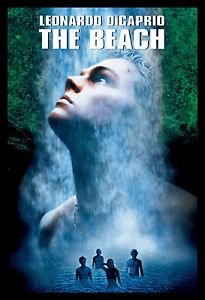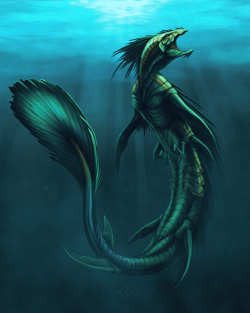- Sep 22, 2013
- 4,956
- 250
- 85
Danny Boyle's provocative nihilism film The Beach, starring Leo DiCaprio, is an homage in part to Joseph Conrad's seminal war-alienation novel Heart of Darkness.
In The Beach, a young American traveller/tourist named Richard (portrayed brilliantly by DiCaprio) finds a remote idyllic isolated/uncharted secret island off the coast of Thailand where there are hippies building a 'Utopian community.'
Richard becomes part of the Utopian community while entertaining personal curiosities about nature and love and life. However, soon, things become much more complex, as Richard starts contemplating the deep philosophical meaning/weight of isolationism and being separated from modern civilization where all you have is your imagination and your 'loose bond' to nature.
In one jarring sequence in the film, Richard is sitting alone in a hut meditating in the dark when his friend walks in to ask him why he's sitting in the dark all alone. Richard explains he's contemplating not nirvana or peace but the reality of darkness and eerie mysteries of philosophy such as alienation and nihilism. His first response in fact to his friend's interrogation is, "I'm improving my night-vision!"
Richard is obviously a modernism-critical 'narrator-like' protagonist inviting us to contemplate the complexity of human philosophy and consciousness in an ever-increasingly 'connected' world (e.g., Wall Street, NASDAQ, Wal-Mart, etc.).
When Richard is meditating alone in the dark in his hut in the one sequence he begins eerily talking about 'night-vision,' we start to realize that Boyle wants us to consider the possibility that meditating on isolationism might bring you very close to the heart of darkness itself --- a place where you decide your unique human consciousness just might 'intellectually justify' your philosophical renunciation of 'normal civilization.'
It is therefore worthwhile to consider if Boyle wants us to posit that isolationism stirs imaginative thoughts/ideas about the nature of order and chaos itself and perhaps even that enigmatic 'region' of deep mysteries.
The term 'leviathan' refers to a giant metaphysical sea-beast symbolizing uncertainty or chaos. Scholars have borrowed the term to talk about political upheaval and the instinct to rebel (e.g., Thomas Hobbes' Leviathan), and artists/film-makers have borrowed the term to evaluate the 'ergonomics' of fear and doubt (e.g., George Cosmatos' eerie sci-fi horror-film Leviathan).
So is Richard meditating on 'leviathan' while brooding about isolationism on his idyllic island? I like comparing The Beach to Robert Zemeckis's Cast Away (a paradise-consciousness film about surviving alone on a rustic island starring Tom Hanks who also does a good acting job), since Zemeckis's film also infers ideas/notions about isolationism in an otherwise idyllic environment (though Zemeckis's film is more like Robinson Crusoe, while Boyle's film is obviously much more like Conrad's Heart of Darkness).
So the question is, "Should characterizations of very odd or unnerving concepts in cinema be considered permissible (under our current ratings/parental-advisory system)? Should movies be shocking (e.g., Alfred Hitchcock) or friendly (e.g., Walt Disney)?
Censorship is a key concern in our modern age of media-engaged social analysis (e.g., Charlie Rose, The Howard Stern Show, etc.).
====
As Richard courts a relationship with a beautiful/exotic French woman of multicultural origins, he starts thinking that seduction is a key 'face' of human nature itself. However, romance does not completely 'satisfy' Richard. He soon engages in an affair with the female head of the Utopian community on the idyllic island before beginning to meditate about pure loneliness...

As Richard sinks deep into a very odd and morbid obsession with following around a group of mysterious and dangerous marijuana-plant protecting Thai criminals who have also found the isolated idyllic island, he begins to fantasize about courage. He then thinks about the value of engaging with a very insane person named 'Daffy' in a hotel in Thailand and realizes that Daffy's 'brand' of insanity is not so far from Richard's own current odd meditation about alienation and isolationalism on the idyllic island. When Richard meditates on the heart of darkness itself alone in a hut (sitting in the dark), we get the very eerie feeling that Richard may be contemplating the existence of 'odd consciousnesses' (e.g., leviathan) representing malice, chaos, deprivation, indulgence, privacy, loneliness, meditation, and even suicide.

After Richard's 'adventure' ends, he re-assimilates (spoiler-alert!) back into modern civilization (in America). He sits down in front of an Apple iMac to do some work, and we get the feeling he's no longer meditating on the heart of darkness, though we suspect he's still feeling 'imaginative' about analysing all the intricacies of modern civilization, complete with all its suffocating bureaucracy (e.g., NASDAQ) and 'mundane vitality.' Richard is once again 'normal.'

Francis Ford Coppola's artistic Vietnam War film Apocalypse Now also is a nod to Conrad's Heart of Darkness, and Marlon Brando portrays the eerie American general Kurtz (a man who's gone mad while living isolated among primal natives in a swamp-like region and meditating on the power of privacy). Should such films be considered radical or is the nature of a 'free country' to entertain open dialogue about deprivation/alienation?
====

In The Beach, a young American traveller/tourist named Richard (portrayed brilliantly by DiCaprio) finds a remote idyllic isolated/uncharted secret island off the coast of Thailand where there are hippies building a 'Utopian community.'
Richard becomes part of the Utopian community while entertaining personal curiosities about nature and love and life. However, soon, things become much more complex, as Richard starts contemplating the deep philosophical meaning/weight of isolationism and being separated from modern civilization where all you have is your imagination and your 'loose bond' to nature.
In one jarring sequence in the film, Richard is sitting alone in a hut meditating in the dark when his friend walks in to ask him why he's sitting in the dark all alone. Richard explains he's contemplating not nirvana or peace but the reality of darkness and eerie mysteries of philosophy such as alienation and nihilism. His first response in fact to his friend's interrogation is, "I'm improving my night-vision!"
Richard is obviously a modernism-critical 'narrator-like' protagonist inviting us to contemplate the complexity of human philosophy and consciousness in an ever-increasingly 'connected' world (e.g., Wall Street, NASDAQ, Wal-Mart, etc.).
When Richard is meditating alone in the dark in his hut in the one sequence he begins eerily talking about 'night-vision,' we start to realize that Boyle wants us to consider the possibility that meditating on isolationism might bring you very close to the heart of darkness itself --- a place where you decide your unique human consciousness just might 'intellectually justify' your philosophical renunciation of 'normal civilization.'
It is therefore worthwhile to consider if Boyle wants us to posit that isolationism stirs imaginative thoughts/ideas about the nature of order and chaos itself and perhaps even that enigmatic 'region' of deep mysteries.
The term 'leviathan' refers to a giant metaphysical sea-beast symbolizing uncertainty or chaos. Scholars have borrowed the term to talk about political upheaval and the instinct to rebel (e.g., Thomas Hobbes' Leviathan), and artists/film-makers have borrowed the term to evaluate the 'ergonomics' of fear and doubt (e.g., George Cosmatos' eerie sci-fi horror-film Leviathan).
So is Richard meditating on 'leviathan' while brooding about isolationism on his idyllic island? I like comparing The Beach to Robert Zemeckis's Cast Away (a paradise-consciousness film about surviving alone on a rustic island starring Tom Hanks who also does a good acting job), since Zemeckis's film also infers ideas/notions about isolationism in an otherwise idyllic environment (though Zemeckis's film is more like Robinson Crusoe, while Boyle's film is obviously much more like Conrad's Heart of Darkness).
So the question is, "Should characterizations of very odd or unnerving concepts in cinema be considered permissible (under our current ratings/parental-advisory system)? Should movies be shocking (e.g., Alfred Hitchcock) or friendly (e.g., Walt Disney)?
Censorship is a key concern in our modern age of media-engaged social analysis (e.g., Charlie Rose, The Howard Stern Show, etc.).
====
As Richard courts a relationship with a beautiful/exotic French woman of multicultural origins, he starts thinking that seduction is a key 'face' of human nature itself. However, romance does not completely 'satisfy' Richard. He soon engages in an affair with the female head of the Utopian community on the idyllic island before beginning to meditate about pure loneliness...

As Richard sinks deep into a very odd and morbid obsession with following around a group of mysterious and dangerous marijuana-plant protecting Thai criminals who have also found the isolated idyllic island, he begins to fantasize about courage. He then thinks about the value of engaging with a very insane person named 'Daffy' in a hotel in Thailand and realizes that Daffy's 'brand' of insanity is not so far from Richard's own current odd meditation about alienation and isolationalism on the idyllic island. When Richard meditates on the heart of darkness itself alone in a hut (sitting in the dark), we get the very eerie feeling that Richard may be contemplating the existence of 'odd consciousnesses' (e.g., leviathan) representing malice, chaos, deprivation, indulgence, privacy, loneliness, meditation, and even suicide.

After Richard's 'adventure' ends, he re-assimilates (spoiler-alert!) back into modern civilization (in America). He sits down in front of an Apple iMac to do some work, and we get the feeling he's no longer meditating on the heart of darkness, though we suspect he's still feeling 'imaginative' about analysing all the intricacies of modern civilization, complete with all its suffocating bureaucracy (e.g., NASDAQ) and 'mundane vitality.' Richard is once again 'normal.'

Francis Ford Coppola's artistic Vietnam War film Apocalypse Now also is a nod to Conrad's Heart of Darkness, and Marlon Brando portrays the eerie American general Kurtz (a man who's gone mad while living isolated among primal natives in a swamp-like region and meditating on the power of privacy). Should such films be considered radical or is the nature of a 'free country' to entertain open dialogue about deprivation/alienation?
====

